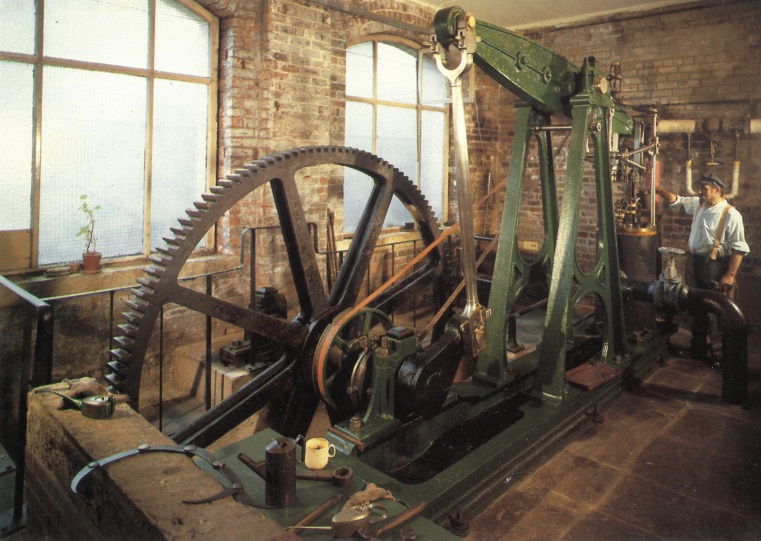A whole-community effort to re-open the Calderdale Industrial Museum

After 17 years in mothballs, the Calderdale Industrial Museum is re-opening to the public in early 2017, thanks to a ground-breaking partnership between Calderdale Council and the volunteer-run Calderdale Industrial Museum Association.
The Calderdale Industrial Museum originally opened in 1986 to wide acclaim and support from the local community. In 1987 it was awarded “Best Museum of Industrial & Social History”. It had a strong story to tell about Halifax’s industrial past as the ‘town of 100 trades’ and had a strong focus on textile production throughout Calderdale.
However, by the late 1990s, it was struggling against the increased costs of keeping the building and collections open and maintaining visitor interest. The service was gradually reduced, until in November 2000, it was closed.
The museum’s collections were retained in situ and the museum service continued to preserve them after closure. Many were integral to the building, so there was no easy solution for their disposal.
While in many ways unavoidable, the closure of the industrial museum was felt with a great sense of loss by residents and visitors to Halifax and Calderdale. Calderdale Council was frequently approached by people asking for its return.
In 2010, the first serious discussions were held about finding a way of re-opening the museum under new ownership. In 2011, the Calderdale Industrial Museum Association (CIMA) had its first meeting.
CIMA is a voluntary group whose members were campaigning for the re-opening of the museum. Many of them have experience of working on Calderdale Museums’ industrial collections as volunteers as well as experience and skills from working in industry.
Between us, we were able to restore many of the items in the industrial collection and even arrange occasional well-attended open days. These proved so successful that we were able to demonstrate a public demand for an industrial museum in Halifax.
We then decided to look at how such a museum could be reopened and run by volunteers. We considered a number of potential mechanisms, including a community asset transfer or for the museum to be owned by us and staffed by volunteers.
None of these were quite suitable, so instead, we developed what we think is a unique agreement whereby CIMA leases the building from Calderdale for a peppercorn rent. They are given a grant equivalent to the running costs of maintaining the building as a closed store. In return, they have a licence to operate and open the building to the public and have been loaned the in situ collections.
We faced many challenges along the way, not least the costs of repairing the building, but despite this, the new museum was given the final go-ahead and transfer in August 2016. It is now due to open to the public in early 2017 at around the same time as the refurbished Piece Hall and central library. It will form part of the Halifax central cultural sector.
The whole process with its many complexities, pitfalls and hurdles is a testament to the desire of people from all sectors of Calderdale to make an industrial museum a viable proposition. Challenges still remain, but CIMA is already pursuing full accreditation for their service. It shows how, if the collections can be preserved, eventually, there is hope that they can be re-opened to public access.